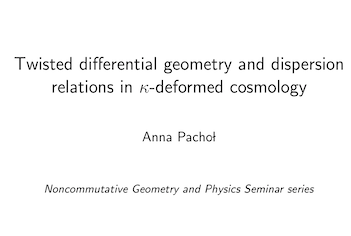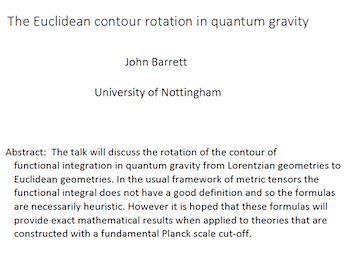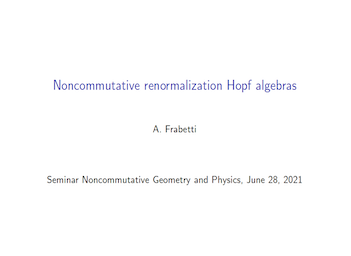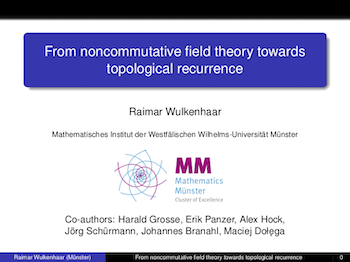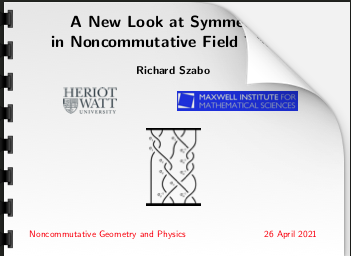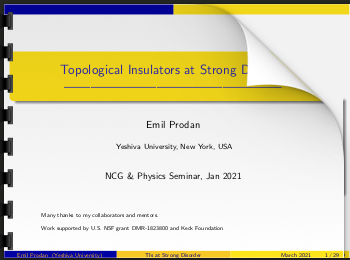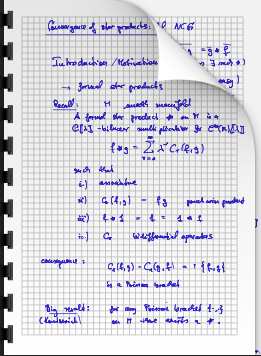Noncommutative Geometry and Physics
Seminar series and special issue of Journal of Physics A
Noncommutative geometry is a very general mathematical paradigm arising from quantum mechanics. As such, it permeates different branches of mathematics and physics.
The series of monthly talks accompanies the special issue of Journal of Physics A and is intended to present the many facets of the emergence of noncommutativity in physics.
The seminar series is organized monthly, last Mondays of a month at 17:00 CEST (Central European Summer Time).
Organizers: Paolo Aschieri, Edwin Beggs, Francesco D'Andrea, Emil Prodan, Andrzej Sitarz
MAILING LIST:
To subscribe please send an e-mail to:
ncgandphysics-mailing-list+subscribe@googlegroups.com
Please give your full name and affiliation in the text of the mail.
PAST TALKS
| Shahn Majid | ||
|
Quantum groups and quantum spacetime models at the Planck scale.
What can quantum groups and noncommutative geometry plausibly tell us about Planck scale physics? I will review key ideas and the current state of the art as I see it. In general terms, since x,p do not commute in quantum mechanics, and covariant momenta do not commute on a curved space, likewise by `Born reciprocity’ we should not expect the positions $x$ to commute either. This suggests the `quantum spacetime hypothesis’ that quantum gravity effects are better modelled by allowing spacetime to have noncommutative or `quantum’ coordinates. Early models in the late 1980s were based on quantum groups either as self-dual paradigms with observable-state/quantum-Born reciprocity, or as Poincare symmetries of quantum Minkowski spacetimes (leading to the bicrossproduct family of quantum groups). By now, there is a general framework of quantum Riemannian geometry which allows a new generation of models, with discrete and/or curved quantum spacetimes and including cosmological and black hole models. I will outline the formalism and some of the common features and issues to date, as well as first applications to baby models of quantum gravity itself.
|
||
